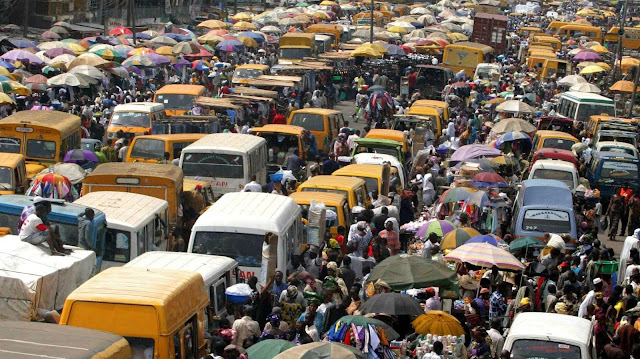Half Of Earth’s 1.7bn Unbanked Live In Nigeria, China, Five Others- IBRD Report
In what may mean the need for more concerted efforts on the part of stakeholders in the Nigerian economy to meet the goal of 80% financial inclusion rate by 2020, a new report, The Global Findex Database 2017: Measuring Financial Inclusion and the Fintech Revolution, published by the International Bank for Reconstruction and Development (IBRD)/The World Bank Group on Thursday said 1.7bn adults, mostly women, across the globe remain unbanked.
Virtually all of these unbanked (defined as adults without an account with a financial institution or through mobile money providers), the report noted, live in developing world, with nearly half of them in seven developing economies. These countries, which are among the world’s most populated are: Nigeria, China, India, Indonesia, Mexico and Pakistan.
Specifically, the report jointly authored by Demirgüç-Kunt, Asli, Leora Klapper, Dorothe Singer, Saniya Ansar, and Jake Hess, noted that half or more of adults in Colombia, Ethiopia, Indonesia, and Nigeria, are unbanked, stressing that such “unbanked adults are just as likely to come from poorer households as from wealthier ones.”
To ensure success in the battle to increase financial inclusion, the World Bank report urged nations to prioritize financial inclusion for women, given that an estimated 56% of the unbanked population are of the female gender.
The report recommended the India example, where the gap between financially included men and women has shrunk from 20% in 2014 to just 6%, recalling also that Bolivia’s gender gap at 8% in 2014, disappeared as account ownership crossed the 50% threshold among men and women.
The Global Findex report urged nations to concentrate on raising financial inclusion among the womenfolk especially in Nigeria, Mexico, Indonesia, Ethiopia, Vietnam and Arab Republic of Egypt with roughly 20% gap. In such economies, the survey showed that wealthier adults are twice as likely to be financially included than the poor masses.
According to the report, unbanked adults are more likely to have low educational attainment, even as “poorer people also account for a disproportionate share of the unbanked. Globally, half of unbanked adults come from the poorest 40% of households within their economy, the other half from the richest 60%. But the pattern varies among economies. In those where half or more of adults are unbanked, the unbanked are as likely to come from a poorer household as from a wealthier one. In economies where only about 20–30% of adults are unbanked, however, the unbanked are much more likely to be poor.”
The survey asked adults without a financial institution account why they do not, with the most common reason being their having too little money to warrant opening an account.
“Two-thirds cited this as a reason for not having a financial institution account, and roughly a fifth cited it as the sole reason. Cost and distance were each cited by about a quarter of those responding to the question, and a similar share said they do not have an account because a family member already has one. Lack of documentation and distrust in the financial system were both cited by roughly a fifth of adults without a financial institution account, and religious concerns by 6%,” the report added.
In Sub-Saharan Africa, 29% or more adults in Ethiopia, Kenya and Nigeria, said they save for a business, even as it noted the large gender gap that continues to slow national progress in financial inclusion. The report also cited the example of Algeria as a country where 56% of men have an account and only 29% of women do, dragging the overall rate of account ownership down to 43%, a situation that is similar to Burkina Faso, Jordan, Mozambique, Nigeria and Peru.
The survey report also drew a link between remittances and financial inclusion, noting that in economies including “Ethiopia, Namibia, Nigeria, and South Africa, people sending domestic remittances through an account are most likely to do so using an account at a bank or another type of financial institution.”
Still on Nigeria and remittances, the 2017 Global Findex survey said “37% of unbanked adults use domestic remittances; similar shares do so in Côte d’Ivoire, the Philippines, and South Africa.
“The most common method for sending or receiving domestic remittances varies across economies. In the Philippines and South Africa unbanked adults are more likely to use an OTC (Over-The-Counter) service. But they are more likely to use cash in Nigeria as well as in Egypt and most other economies in the Middle East and North Africa.
Compared with those who use cash for remittances, people who use OTC services represent a potentially easier opportunity to increase account ownership,” the report added.
The 2017 Global Findex survey pointed to the need to use mobile phone ownership as a driver for financial services delivery and inclusion, as is the case in China and Kenya
represent two different models.
“In China mobile financial services are provided primarily through third-party payment service providers such as Alipay and WeChat using smartphone apps linked to an account at a bank or another type of financial institution. By contrast, in Kenya mobile financial services are offered mainly by mobile network operators, and mobile money accounts do not need to be linked to an account at a financial institution.
In Kenya most account owners have both a financial institution account and a mobile money account. This is reflected in how people make mobile payments. Forty percent of adults use only a mobile money account to make such payments,” the report added.
http://investdata.com.ng/2018/04/half-of-worlds-17bn-unbanked-live-in-nigeria/#more




Comments
Post a Comment